Not to boast, but the other day I crushed a flex post with my car.
I didn’t mean to, of course. I was in downtown Detroit on my way to the Delray neighbhourhood for a little bit of blightseeing when, attempting to make a right on Cass from Bagley, I totally and blissfully banged into the very flex post designed to prevent me and my car from being too close to the bike lane I also had no clue was there.
I note, in case you want to know, that 1) I drive a small car pretty carefully, 2) I care about pedestrian and cyclist safety at least as much as the next woke, 3) I was totally alert and awake, if slightly distracted by the need to double-check directions to the I-75 and most importantly, 4) no human was around to see my blunder or get hurt by it.
Still. For a decent driver, alert and sober, to be rolling over a flex post is a clear indication that the road design is sub-optimal and the bike lane very improperly protected. For one thing, flex posts aren’t nearly visible enough. And for another, pedestrians and cyclists shouldn’t have to count on perfect drivers behaving perfectly 100% of the time for their survival.
Yet we force them to anyway. Very much including right here in Ottawa.
And speaking of. I am flabbergasted by the insufferably inane way the city is going about ruining the best chance we’ve had since the last pandemic — the 1918 one, I mean — to finally turn the street in front of Parliament into a public space worthy of the capital of a G7 country.
Instead, it’ll just be like any other ordinary street, with cars and buses and trucks and whatnot. And one measly temporary bike lane “protected” by flex posts.
I was so mad I wrote a cracker of a column about it. And now I think I’m going to run ads saying we should change our motto to “Ottawa: Where Motornormativy Thrives And Everything Else Dies!”
Hey, at least it rhymes.
One thing I’m slowly discovering as I spend time in Detroit (four visits in eight months, it’s starting to recognize me), is that for a city that owes much of its existence to private motor vehicles it is remarkably pleasant for people who use their feet, a bike, a scooter or any mobility device you can think of.
The centre of the city features extra wide and comfortable sidewalks, and geofencing prevents dockless scooters from rolling through parks and other spots where they are not welcome. I haven’t yet tried public transit in that town but I see it operating frequent buses, quiet streetcars and clean, elevated trains.
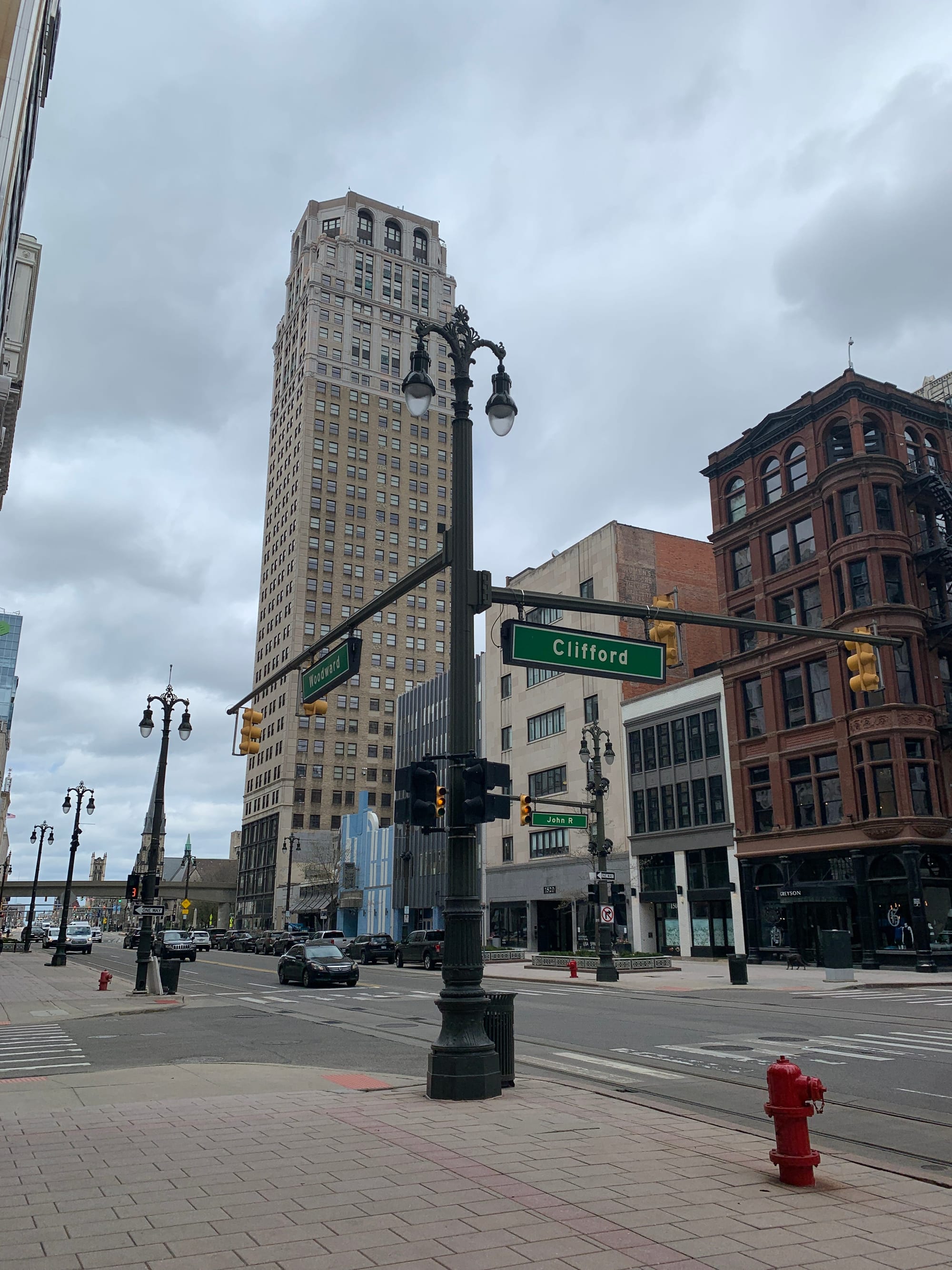
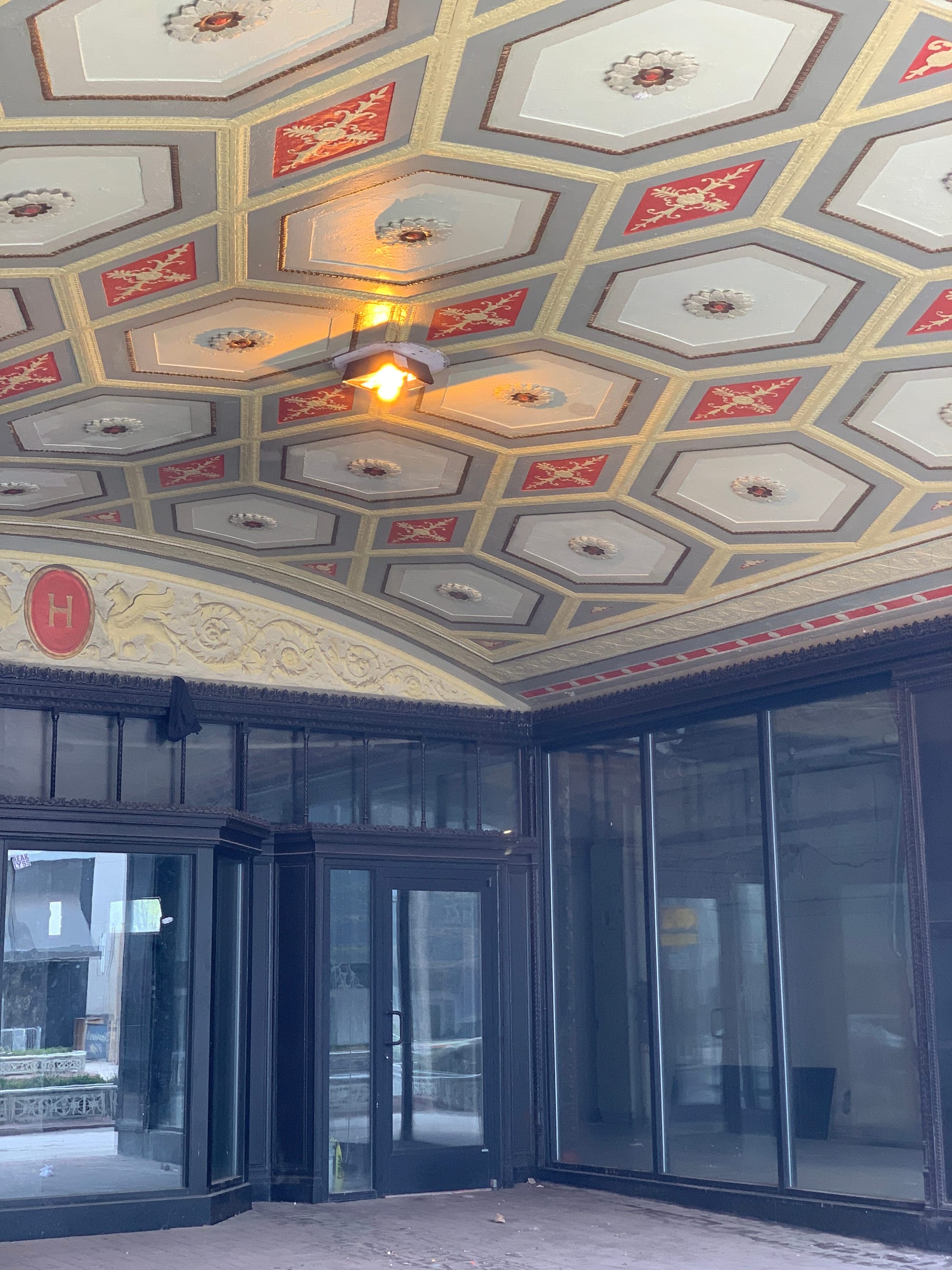
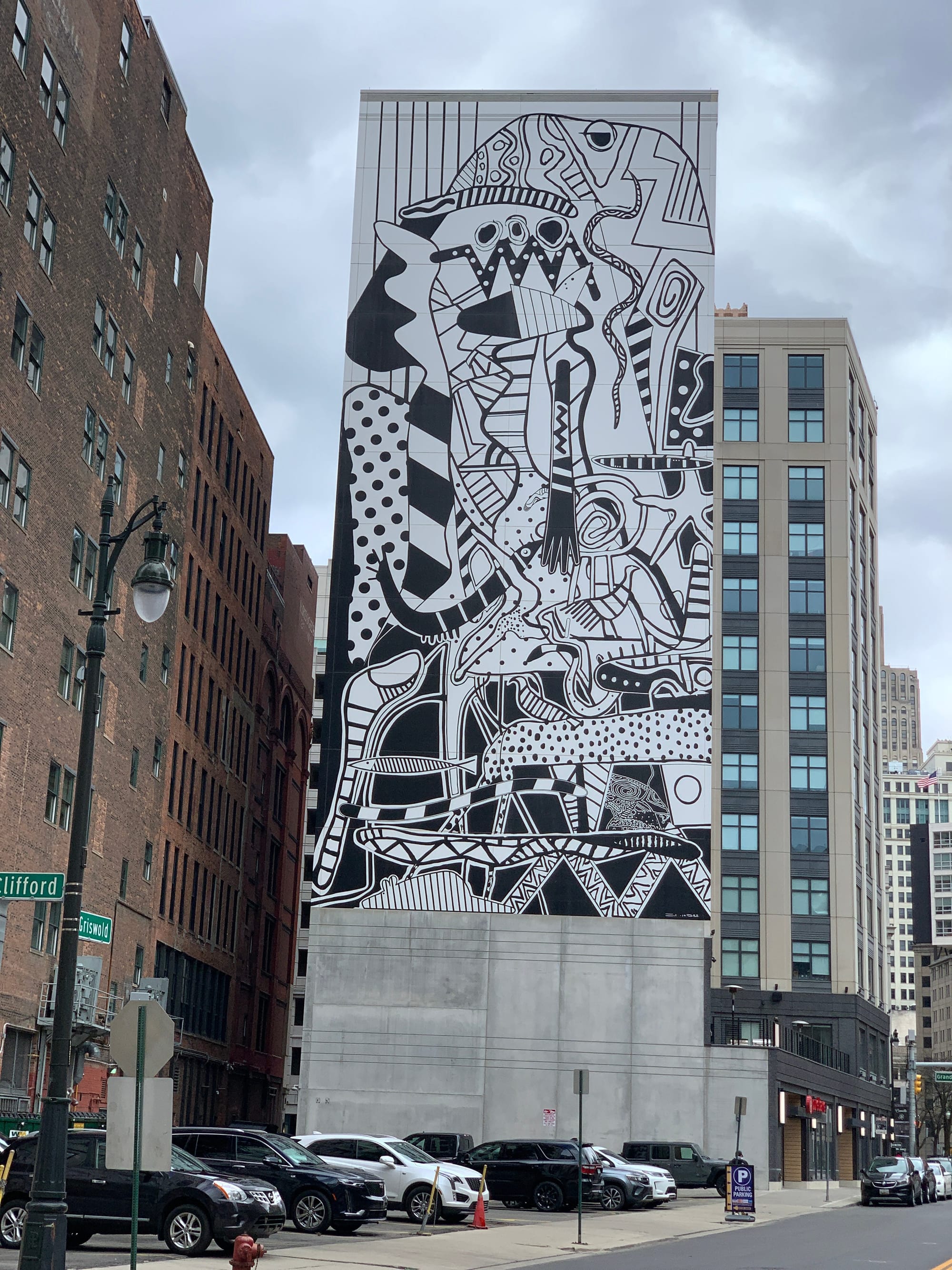
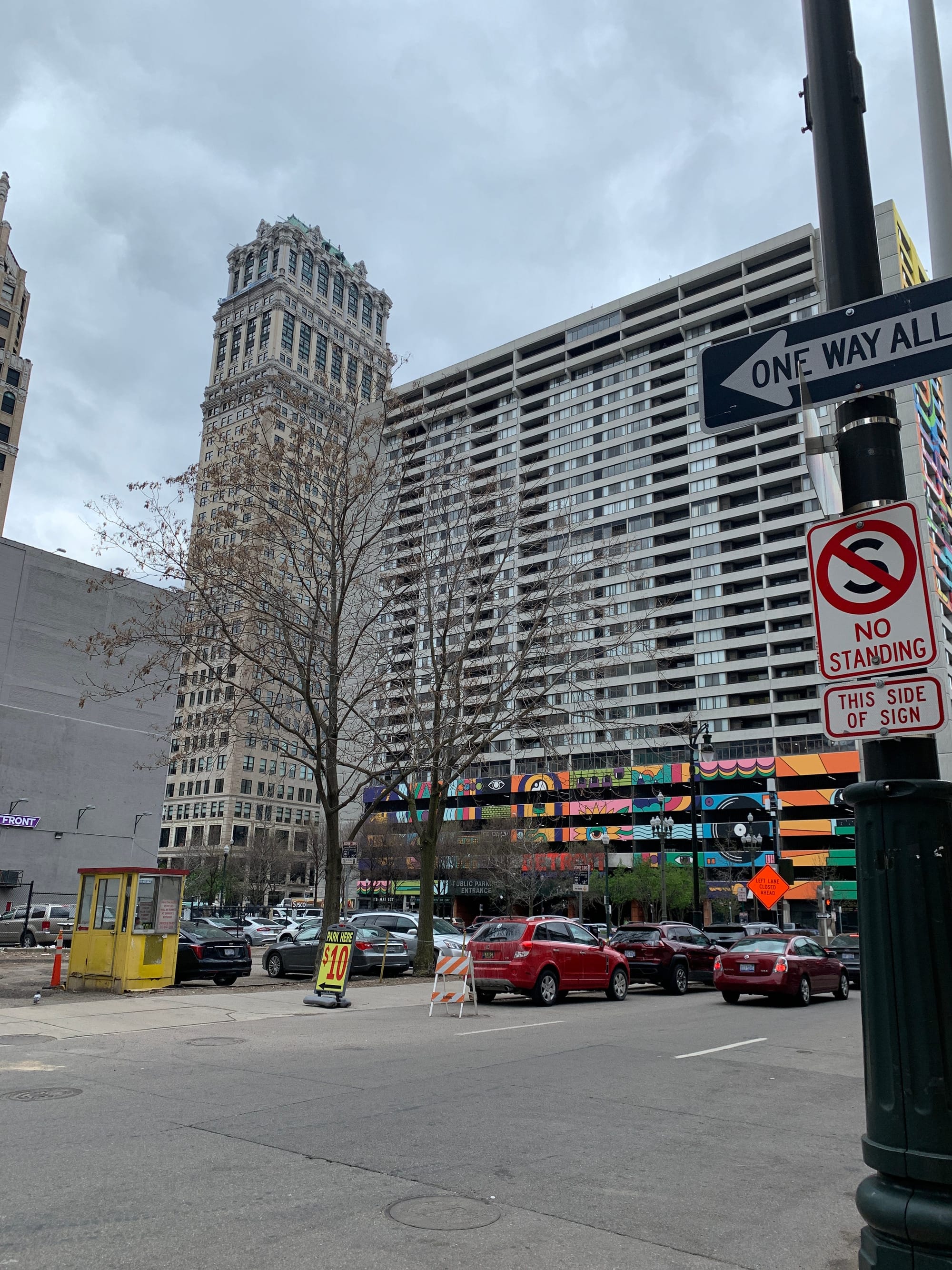
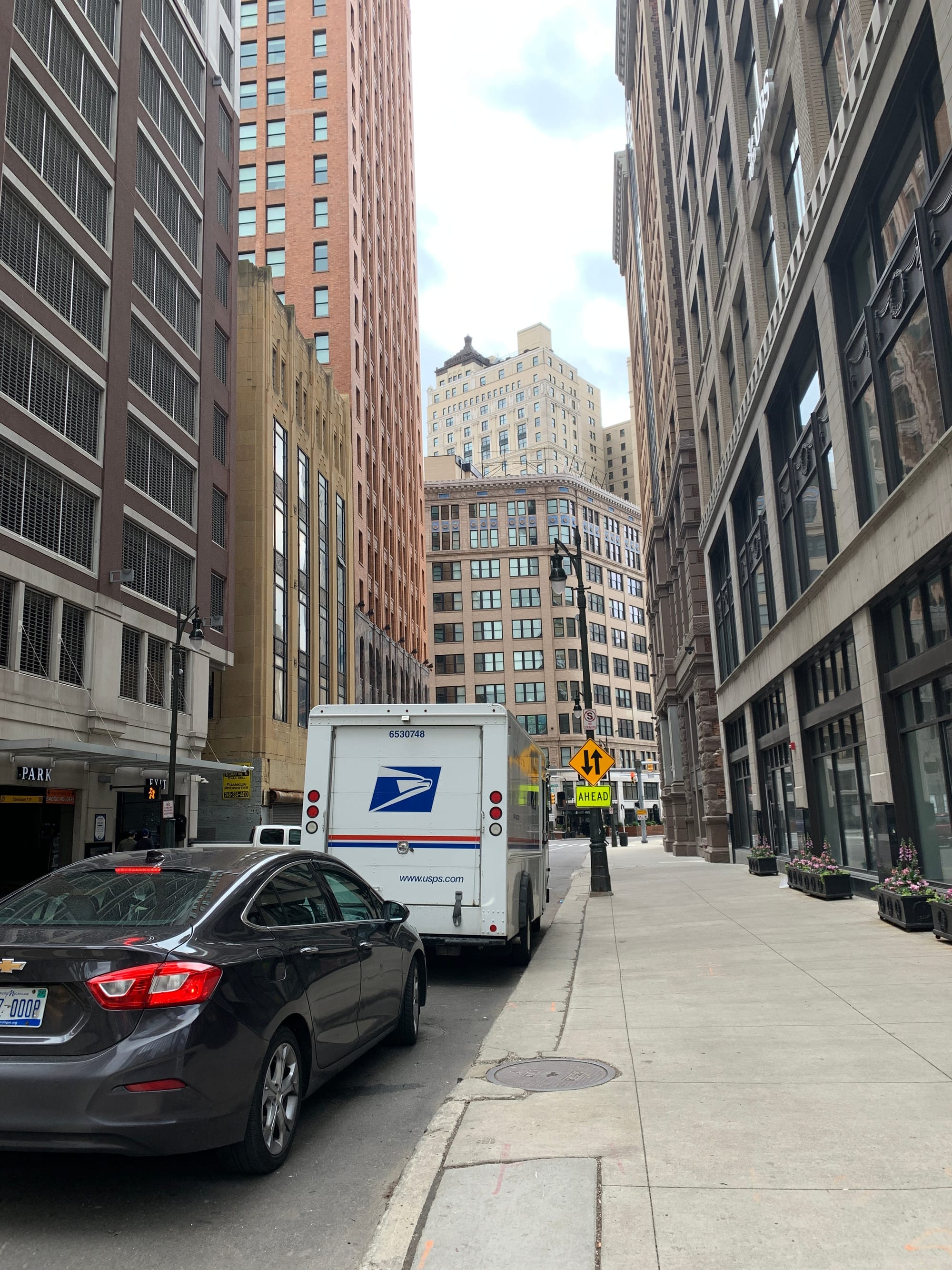
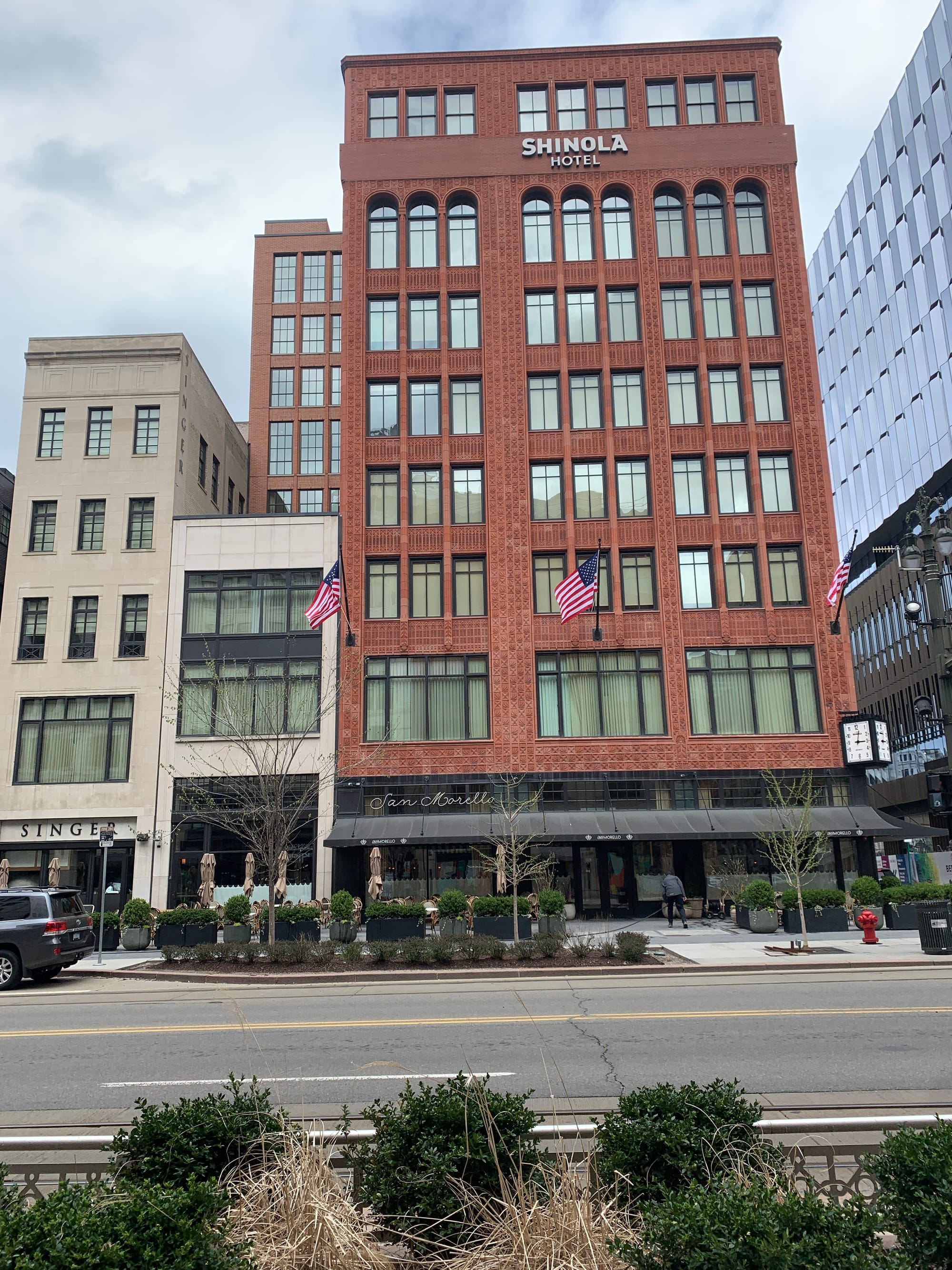
Delray, on the other hand, isn’t great for anyone, not even cars. This part of town, minutes from the lovely shots above, used to be full of homes inhabited by people who, to misquote Justin Trudeau, worked their asses off to join the middle class without ever quite getting there.
Now it’s mostly empty fields with a few homes that have been passed down from generation to generation to people even more stubborn than their forebears who absolutely refuse to leave no matter what the incentives are.
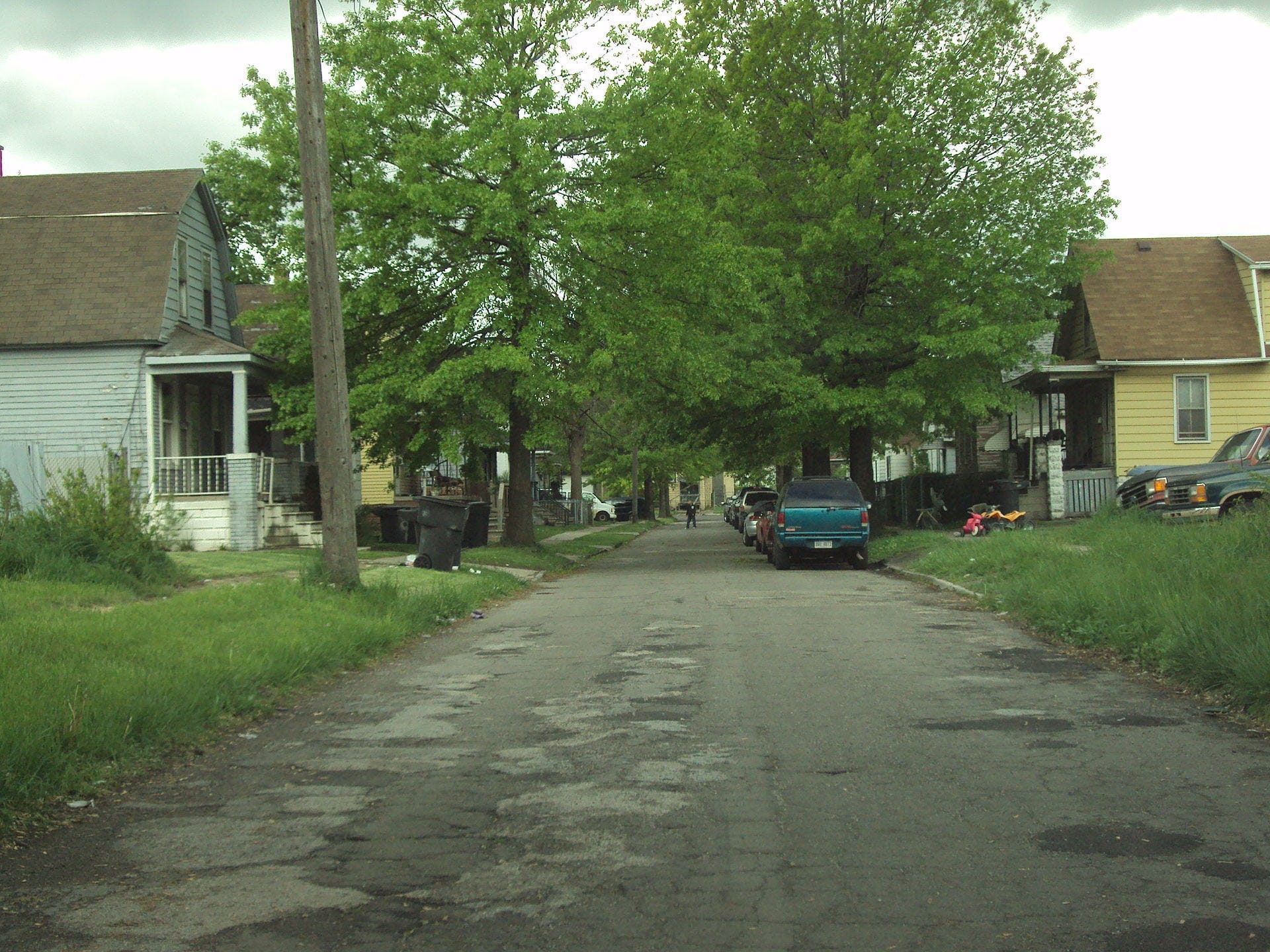
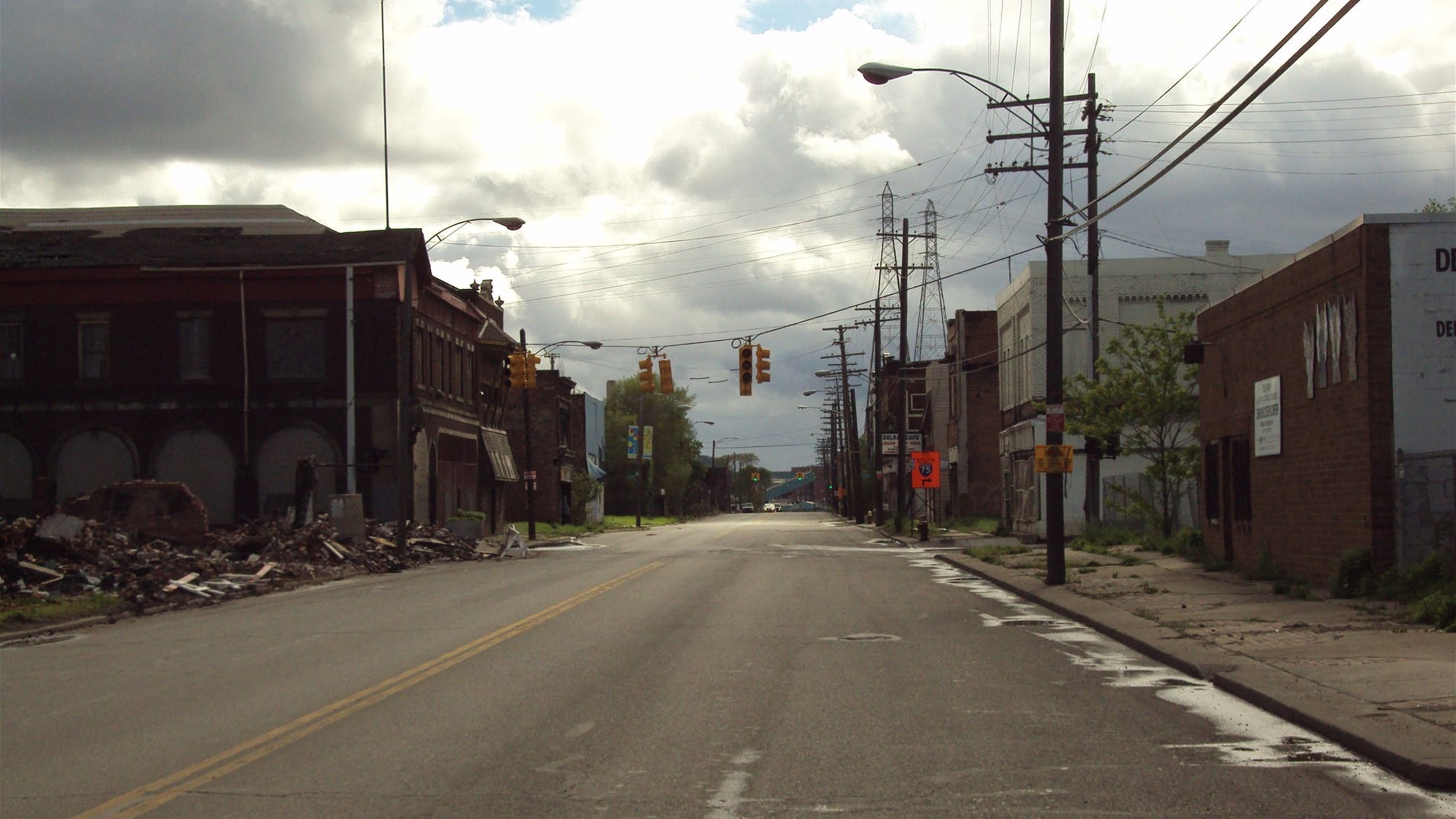
There are no stores, no amenities, no restaurants, not even asphalt worthy of the name. You have to slalom your way around potholes and deep cracks. There’s a very interesting sociological study to be done there, that’s for sure. Maybe on the next trip. In the meantime, if you’re interested, here’s a long but fascinating piece from 2017 about the area. Just be aware that it discusses some fairly distressing subjects, fair warning.
This time on the agenda for our Detroit jaunt was a sportsball game for Beloved and Eldest. They were decked out in so much Tigers paraphernalia that they are solely to credit for the team’s victory against Cleveland or whoever. Together my two lovelies lit up Comerica Park, which is downtown and supremely accessible by transit as well as cars — as are the other sports arenas in town, one for footsportsball and the other for sportspuck.

Do you know, gentle people of Ottawa, that it’s possible to have great sports venues right in the downtown core that can also serve as concert halls and public spaces and that it doesn’t have to be something that gives municipal officials decades’ worth (and counting) of conniptions?
Imagine that.
This trip also featured an impromptu study of the state of highways across various states. I-71 and I-65, in particular, are positively atrocious in Kentucky, whereas in neighbouring Tennessee (for the I-65) and Ohio (I-71) roads are either fine or currently in the process of being redone. In Kentucky, they are worse than Bronson Avenue in March or the Metropolitan in Montreal any time of year. For a place that almost never experiences freezing, never mind that maddening cycle of freeze-thaw that we from the north can blame for the craters on our highways, it’s just gross. One of the worst places was in Louisville, where the two interstates connect and where, incidentally, we stopped for the night on the road between Alabama and Detroit.
Oh yes, because we also had a wonderful time experiencing, once again, the beautiful warmth, gay-friendliness and fried chicken of my absolute favourite city in the whole wide South: Huntsville, Alabama.
I was happy this time that I could take a postcard from a young Canadian friend to the U.S. Space & Rocket Centre, at NASA’s Marshall Space Flight Center. They have a fun program for kids of all ages that sends postcards to space before mailing them back. My young friend is a bit bigger than a kid but he’s nuts about space, so of course I had to.
I’m also pleased to have tried the Multi Axis Trainer, aka The Spinny Thing, that served to train astro-folks and pilots so they would know what to do should they spin out of control. I know this should be serious business, but I giggled the whole entire time. I may have sprained a jaw muscle laughing so hard.
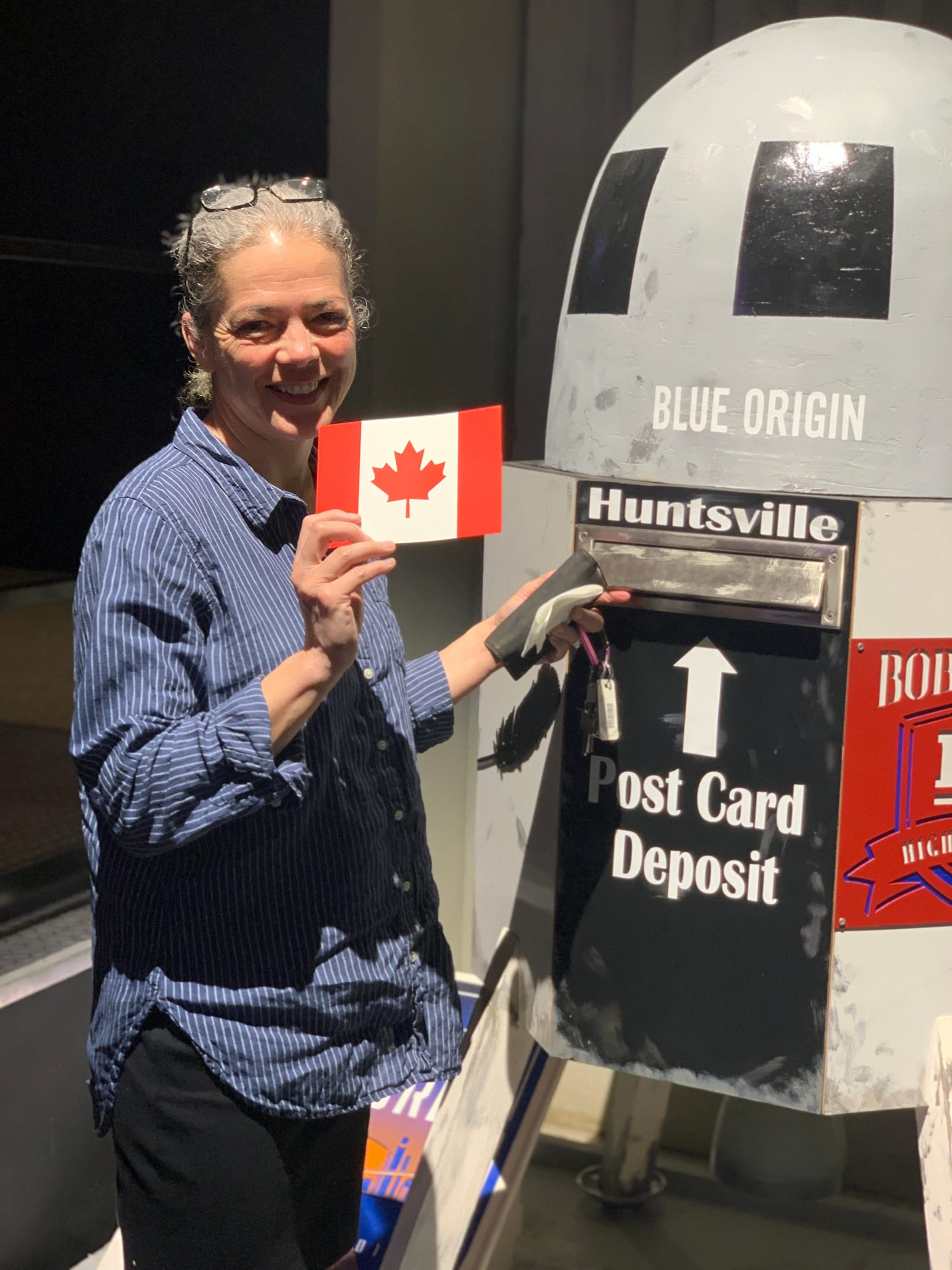
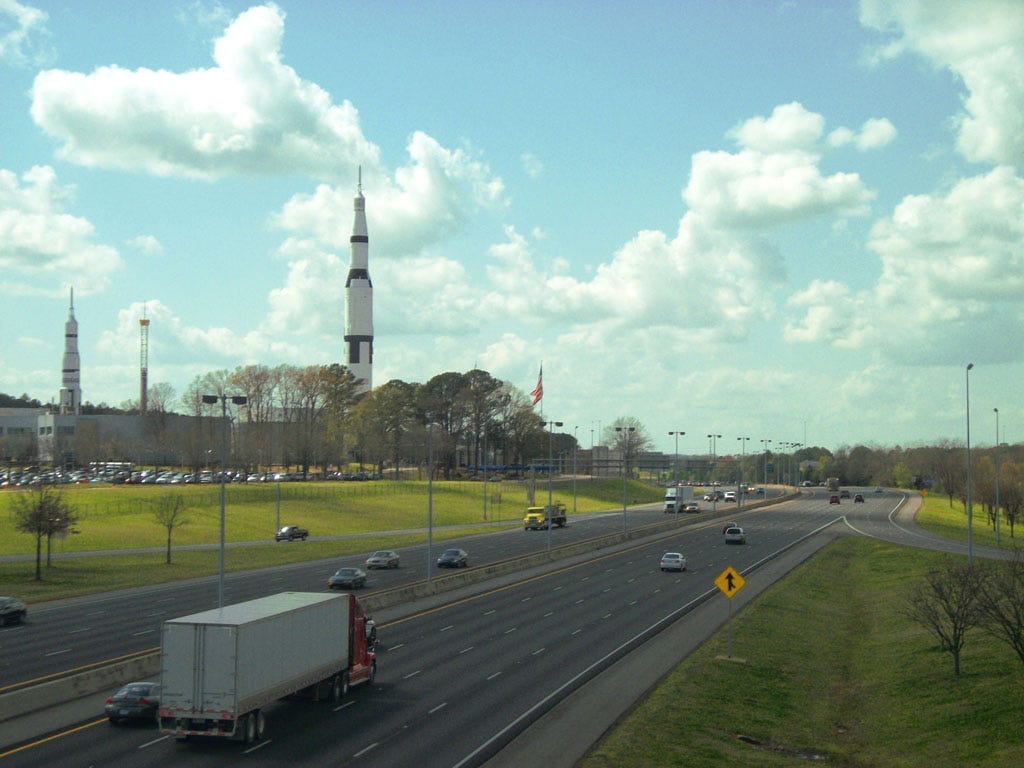
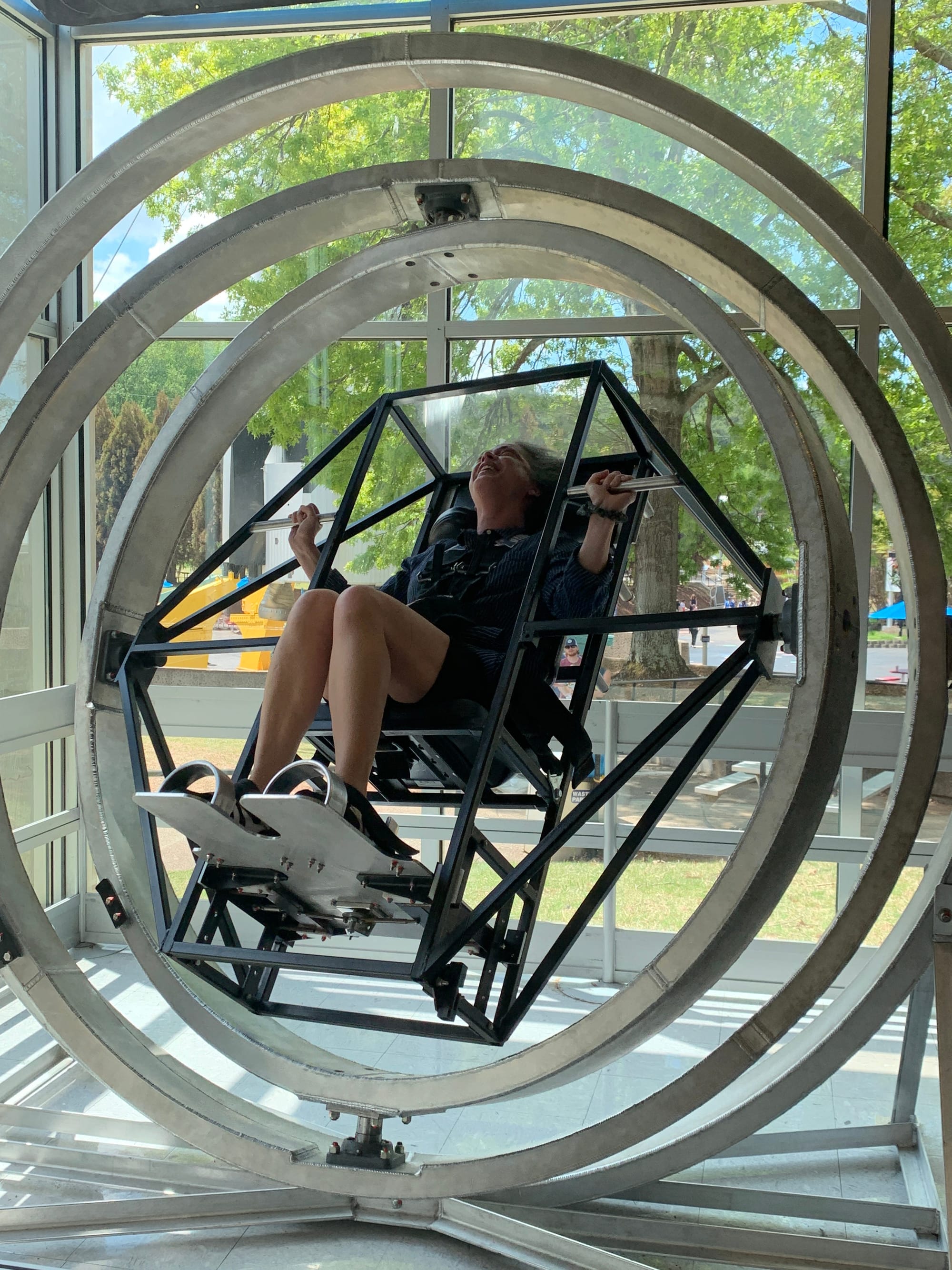
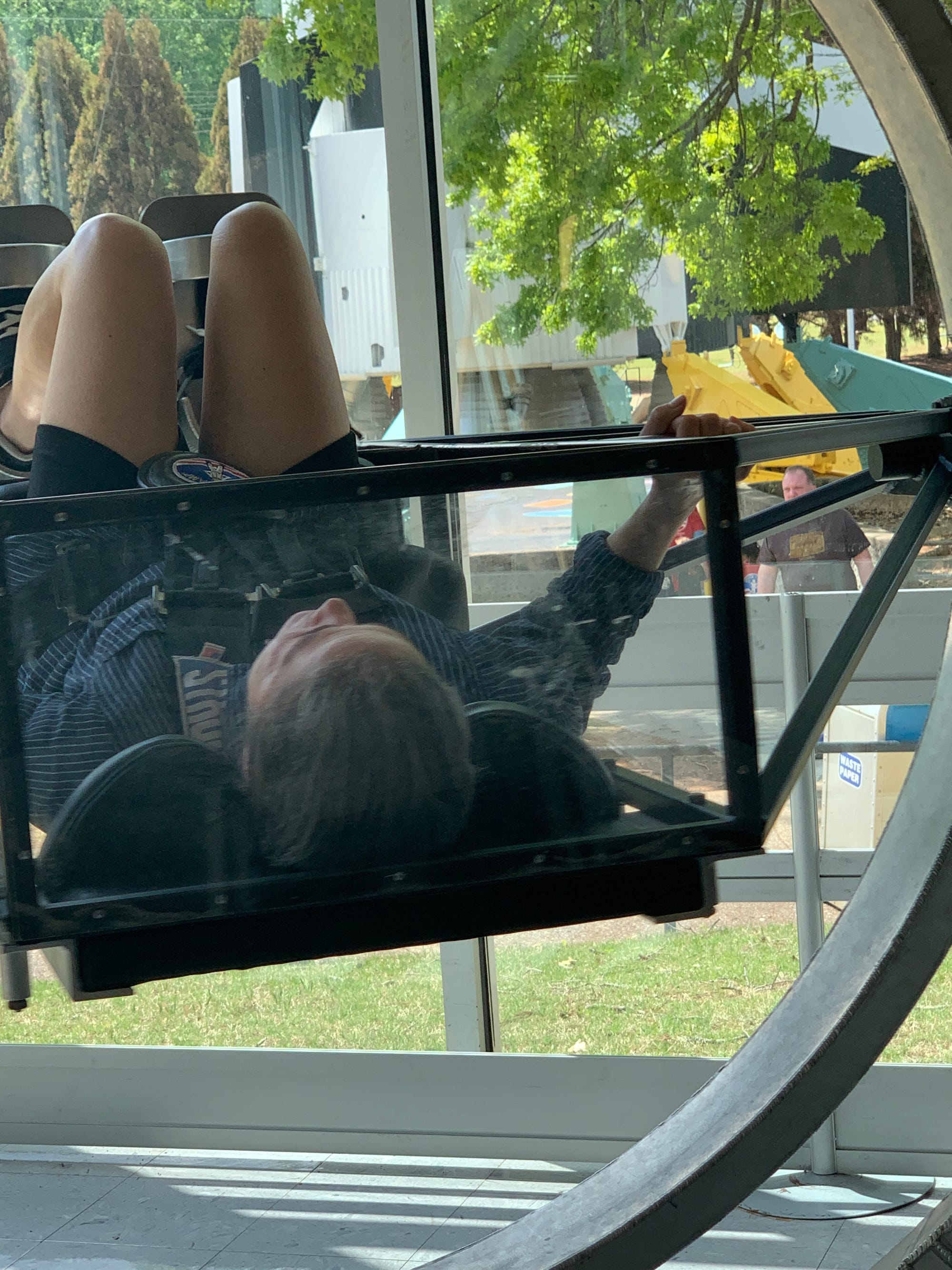
As much as I love Huntsville, I’m not blind to the fact that in order to have any chance at living something close to a full life there, you need a car.
The roads are nice and parking is both plentiful and cheap. Like $0.50 an hour cheap. So most people drive. The agglomeration does not have enough people to make mass transit a viable alternative, but they’re trying. Mostly they’re endeavouring to set up a system that can scale as the city grows. And given that it’s growing like crazy, as well they should.
What I like about the Huntsville bus system is that they use small buses. I see those little buses go by often enough and on the various online Huntsville groups where I lurk, I never hear a complaint. Unlike, to take an example completely at random, what you find against OC Transpo on Twitter any minute of any day.
Fare is one dollar and you can pay using an app. Oh, and also? During Earth Week it’s free for students and a few other user categories. If only we in Ottawa could be as progressive as this small Alabama town, eh.
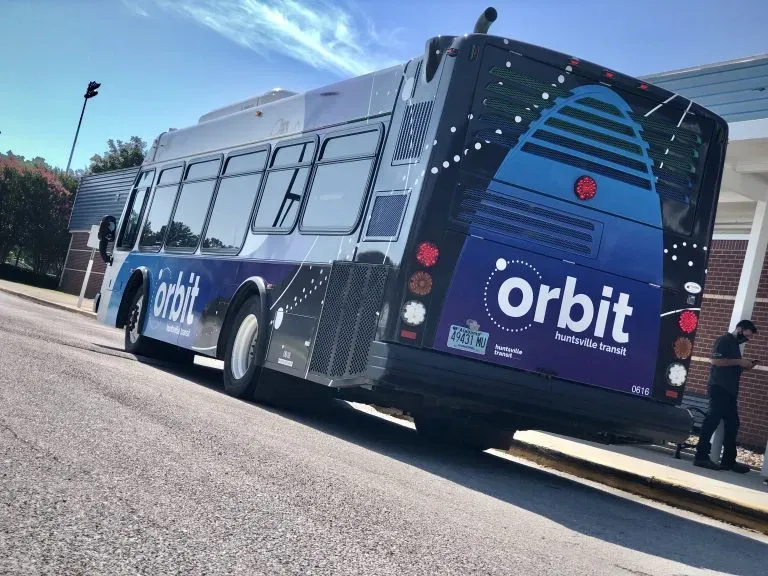
Everywhere I go these days I am struck by how apt the term “motornomativity” is to explain how we are so inexplicably attached to the very car-centric designs that are making us unhappy, unhealthy and also a little sad.
Cars very much have their use. For instance they allow you to travel with a lot of flexibility between various cities, and to change your itinerary as you please. I positively love bumming around in mine; I’ve been addicted to roadtripping for decades. Cars are also useful to ferry kids and teenagers around town for their various activities. Especially when transit is a shit option.
I live in Westboro and one of my kids works on Bronson not far from the Queensway. It would take her at least 45 minutes and two buses to get to work by transit. If I drive her, it varies between six and 12 minutes depending on how many red lights I catch on the way. Transit in Ottawa is only good for those who are going downtown weekday mornings and back to their suburbs weekday afternoons. And for those who live near enough from the LRT, on those blessed days when the trains are running more or less normally.
I write these lines on Earth Day 2023. I could have written them almost word for word the first time Earth Day was celebrated, a few months before I was born, in April 1970. I’m sure it would be an interesting exercise to go back in time like that. But it would force us to come to grips with the inescapable fact that we haven’t made very much progress at all in over half a century.




